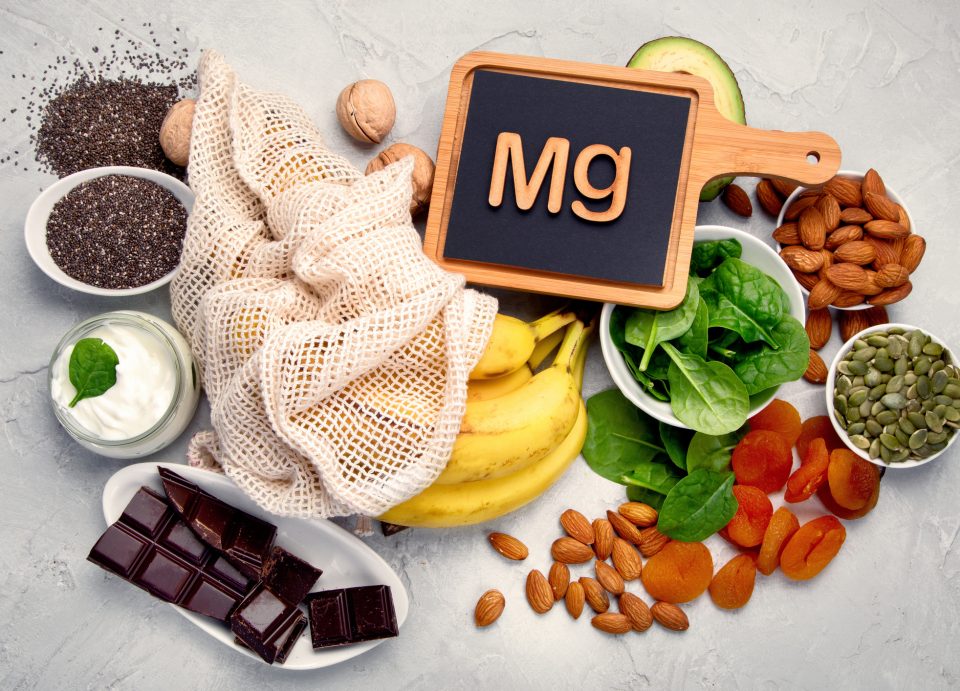Magnesium Deficiency – Normal Sign of Aging?


Some of the most frequent complaints I hear from my patients, especially those older than 50, involves muscle cramps and spasms, notably those leg zingers that make them jump out of bed in the middle of the night; trouble sleeping; and daytime stiffness or pain in their muscles. Most of my patients laugh these symptoms off as just “getting old,” but they’re surprised when I tell them these are more likely symptoms of a magnesium deficiency, which can easily be corrected. Read on and see if you have any of the common symptoms of low magnesium and what I recommend.
Symptoms of Low Magnesium
Magnesium is a “macro mineral,” which means it is one of the 6 most important minerals for which your body requires large amounts. However, magnesium deficiency is fairly common in people over the age of 50 and can stem from a variety of things from dietary imbalances to certain health conditions. In fact, less than 30% of Americans get the RDA of magnesium, which is the absolute minimum recommendation for magnesium a day!
Magnesium deficiency is most common in menopausal women who usually start taking calcium supplements for bone health and may be on estrogen replacement therapy. If you don’t take a magnesium balanced calcium supplement, you can become deficient in magnesium. Low carb dieting can also lead to magnesium decreases.
However, men also get magnesium deficiencies – especially if they drink a lot of coffee, tea or carbonated sodas, or eat a few sugary snacks during the day. Excess refined dietary sugar causes you to lose a lot of magnesium through urination. Also, if you are under stress frequently, you can become deficient in magnesium due to your body’s increased production of cortisol and adrenaline. Both of these chemicals can deplete your magnesium stores.
Blood tests only show what magnesium is circulating in the blood at the time of the test. Symptoms are a better gauge to determining if you have a deficiency. Here are some common symptoms of magnesium deficiency:
- Muscle cramps
- Facial tics
- Poor sleep/anxiety
- Chronic pain/fibromyalgia
- Headaches
Also the following conditions and medications to treat them can cause magnesium deficiencies:
- High blood pressure/congestive heart failure, diuretics.
- Asthma/inhalers, steroid medication.
- Diabetes/insulin, oral antidiabetics.
- Digestive disorders like Crohn, celiac sprue causes loss of magnesium from diarrhea.
- Infections/antibiotics (especially tetracyclines).
- Cancer/chemotherapy drugs – Platinol; suppressed immune system drugs – Neoral.
- Alcohol addiction/low food intake, vomiting, diarrhea can cause magnesium deficiency.
- Liver disease/depletes minerals.
- Burns/surgery – causes stress on the body, depletes magnesium.
Recommendations for Magnesium Deficiency
 If you have any of the conditions or symptoms listed above, you could very well have a magnesium deficiency as they are very common. Here are some recommendations I give my patients who have symptoms of magnesium deficiency:
If you have any of the conditions or symptoms listed above, you could very well have a magnesium deficiency as they are very common. Here are some recommendations I give my patients who have symptoms of magnesium deficiency:
- Restrict refined sugar in your diet.
- Restrict carbonated sodas, especially colas, which disable magnesium uptake.
- Eat more magnesium rich foods such as pumpkin seeds, almonds, cashews, unsweetened cocoa powder, halibut, bran, spinach. Or, take a 250-500 mg magnesium supplement before bedtime especially if you’re bothered by sleep difficulty, leg muscle cramps or daytime muscle stiffness. Also, try transdermal (topical) magnesium for muscle cramps.
- If you have soft water, it would be best to switch to bottled drinking water for consumption and leave your tap water for cleaning. Soft water depletes magnesium.
- Restrict alcohol intake. Alcohol causes dehydration through frequent urination and magnesium gets depleted from urinary excretion.
As I explain to my patients, magnesium is a critical mineral that your body needs to perform all its major functions – especially your heart, muscles and kidneys. In fact, magnesium is one of the first treatments given in emergency departments in heart attack patients. Optimal magnesium levels can also prevent stroke and obesity. If you’re one of the 55% of Americans who have a magnesium deficiency, follow the recommendations I give my own patients for maintaining optimal magnesium levels, and you’ll go a long way to improving most of those symptoms that perhaps you thought were due to just “getting old!”
